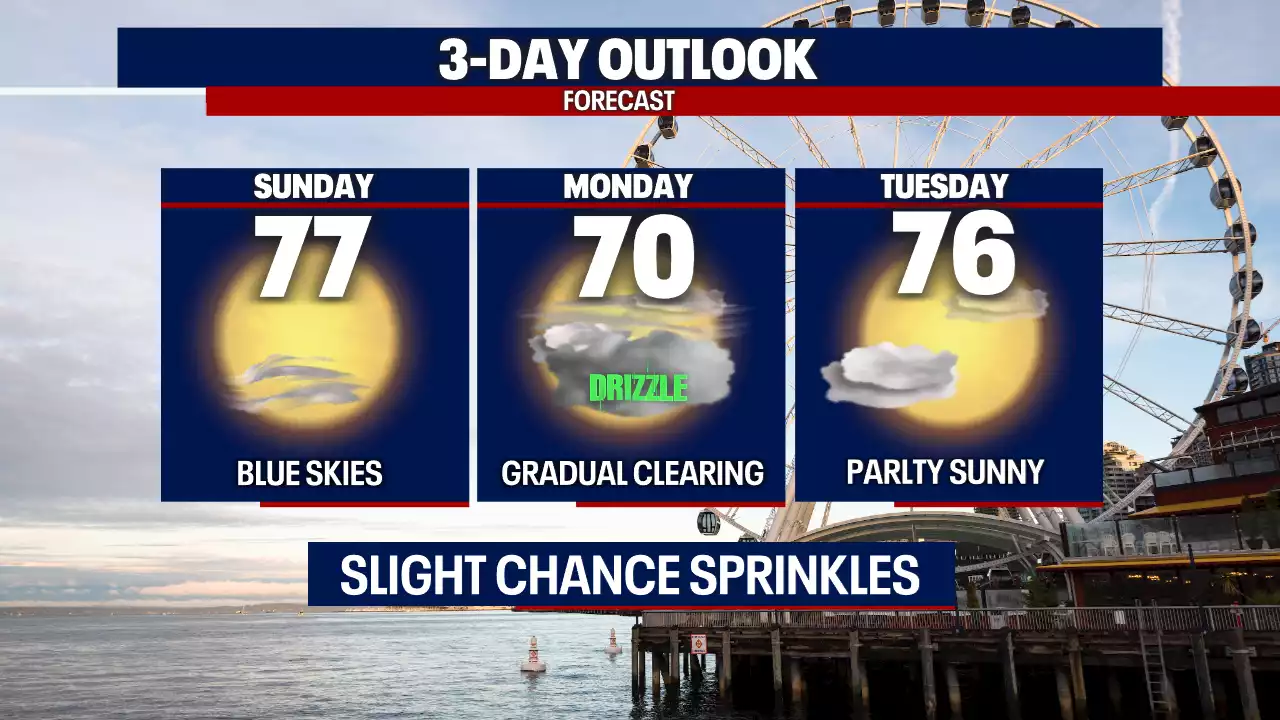Researchers said they've spotted a truly extreme planet beyond our solar system, a blazingly hot world a bit bigger than Neptune that orbits a sun-like star every 19 hours and appears to be wrapped in metallic clouds made of titanium.
WASHINGTON — It is a planet astronomers say probably should not even exist.
It reflects about 80% of incoming light, making it the universe's most reflective object known. Venus, the brightest object in Earth's night sky besides the moon, is our solar system's most reflective object, enrobed in toxic sulfuric acid clouds. Venus reflects about 75% of incoming light. Earth reflects about 30%.
With its star so close, it is a wonder it has any atmosphere, according to the researchers. An atmosphere with water-based clouds, as on Earth, would have been blown away by solar radiation long ago. But they believe its clouds are metallic, a combination of titanium and silicate — the stuff that makes up most of the rocks in Earth's crust.
"The super-reflective cloud cover likely helped stop the planet from warming up too much and being stripped of its atmosphere," Parmentier said. "This is quite unique as all other planets at this temperature that are big enough to keep their atmosphere are too hot to form clouds and are thus as dark as charcoal."
Brasil Últimas Notícias, Brasil Manchetes
Similar News:Você também pode ler notícias semelhantes a esta que coletamos de outras fontes de notícias.
 Ancient ‘Ivory Man’ tomb found in Spain actually belonged to powerful woman: ResearchersNow dubbed the “Iron Lady,” the ornately decorated tomb contained lavish items ranging from a rock crystal dagger and ivory tusks.
Ancient ‘Ivory Man’ tomb found in Spain actually belonged to powerful woman: ResearchersNow dubbed the “Iron Lady,” the ornately decorated tomb contained lavish items ranging from a rock crystal dagger and ivory tusks.
Consulte Mais informação »
 Researchers want to use gravitational waves to learn about dark matter | Digital TrendsA team of astronomers has come up with a method for using gravitational waves to study the mysterious phenomenon of darkmatter.
Researchers want to use gravitational waves to learn about dark matter | Digital TrendsA team of astronomers has come up with a method for using gravitational waves to study the mysterious phenomenon of darkmatter.
Consulte Mais informação »
 A long, 'dangerously hot' heat wave will settle over inland San Diego County starting MondayA light and transient marine layer will keep the coast comparatively cool, but temperatures east of I-15 with be 'scorching,' says the NWS
A long, 'dangerously hot' heat wave will settle over inland San Diego County starting MondayA light and transient marine layer will keep the coast comparatively cool, but temperatures east of I-15 with be 'scorching,' says the NWS
Consulte Mais informação »
 Monday Was The Hottest Day Ever Recorded - CleanTechnicaIf it felt exceptionally hot to you on Monday, that’s because it was. Monday was the hottest day ever recorded by humans. The global average temperature on Monday was 17.01°C (62.62°F). That’s up from 16.92°C (62.46°F), the previous record set in August 2016. Of course, the heat doesn’t hit everywhere the same. In Poland during […]
Monday Was The Hottest Day Ever Recorded - CleanTechnicaIf it felt exceptionally hot to you on Monday, that’s because it was. Monday was the hottest day ever recorded by humans. The global average temperature on Monday was 17.01°C (62.62°F). That’s up from 16.92°C (62.46°F), the previous record set in August 2016. Of course, the heat doesn’t hit everywhere the same. In Poland during […]
Consulte Mais informação »
 A warm and dry Sunday with cooler air MondayLook for warm and dry conditions Sunday with highs near 80. Cooler air arrives Monday with clouds sticking around a bit longer! FOX13
A warm and dry Sunday with cooler air MondayLook for warm and dry conditions Sunday with highs near 80. Cooler air arrives Monday with clouds sticking around a bit longer! FOX13
Consulte Mais informação »
